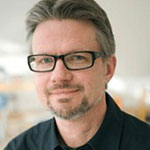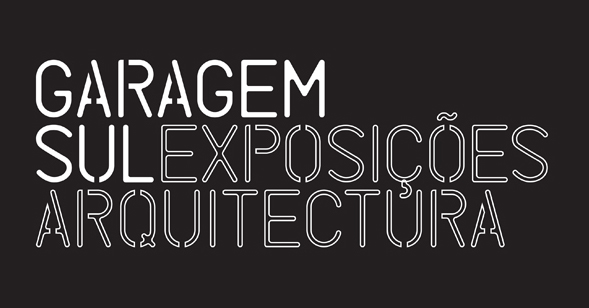Keynote Speakers

Jonathan Michael Hill
Director, MPhil/PhD Architectural Design
Professor of Architecture and Visual Theory at Bartlett School of Architecture Theme I – Knowledge Abstract: Design Research: The First 500 Years In contemporary discourse and practice it is familiar to discuss design research as if it is new to architecture.
But this is to ignore the history of the architect.
Combining a project and a text that share a research theme and a productive relationship, the design PhD is a comparatively new architectural qualification.
But its methods and means are not. Indeed, they have been invaluable to the architect for over 500 years.
Biography An architect and architectural historian, Jonathan Hill is Professor of Architecture and Visual Theory and Director of the MPhil/PhD Architectural Design programme at the Bartlett School of Architecture, UCL.
Jonathan is the author of The Illegal Architect (1998), Actions of Architecture (2003), Immaterial Architecture (2006) and Weather Architecture (2012), editor of Occupying Architecture (1998) and Architecture—the Subject is Matter (2001), and co-editor of Critical Architecture (2007).
He is also a series editor of the Ashgate ‘Design Research in Architecture’ books..

Richard Blythe
Dean of the School of Architecture and Design at RMIT University
Theme II – Methods Abstract:
Professor Richard Blythe is the primary author of the successful EC Marie Curie ITN grant ADAPTr which brings together a network of European institutions in research training for creative practitioners from the disciplines of architecture, design and art.
Primarily the training model has been structured around the practice based PhD developed by RMIT University in Melbourne, Australia and extends that model in an European context.
Unique aspects of this model include the ways in which this approach to PhD training situates research in the studios of practitioners and brings practitioners together as a collective research community.
In some ways this move to re-centre research can be seen as a radical new model for a ‘cloud’ like university or research entity.
This paper will draw on observations of both the RMIT and ADAPTr program and the research conducted within them to identify key elements of this approach to doctoral training and to point to key training techniques and research methods used. The lecture will move step by step through a typical candidature and then use specific examples to illustrate the kinds of knowledge produced. The lecture will conclude with some speculations about what happens beyond training in practice based research and the possible value and implications of the approach outside the discipline of architecture.
Biography:
Dr Richard Blythe is Professor in Architecture and Dean, Architecture + Design at RMIT University, Australia a position he has held since June 2007.
In 2010 he led the establishment of the RMIT University Creative Practice Research PhD program in Ghent, Belgium and was the primary author and lead researcher for the 2013 €4M EU Marie Curie ITN grant ADAPT-r.
In 2013 Richard led the enlargement of this program to RMIT’s Barcelona campus. Richard was a founding director of the architecture practice Terroir and Company Director until 2012 and continues to contribute to the Terroir team. The work of Terroir has been recognized through exhibition and publication nationally and internationally.
Richard served as Chair of the Australian Institute of Architects National Education Committee from 2005-2011 and his most important achievements in that role were: leading the development and adoption of the AIA Research Policy and associated documents; implementing and refining the AIA’s Education Medal, now known as the Neville Quarry Architectural Education Prize.
Richard’s academic passion is creative practice, developing approaches to creative practice research and in building communities of creative practitioner researchers. Richard undertook a Velux visiting professorship in Aarhus, Denmark in 2011. Prior to taking up his position at RMIT Richard lectured at the University of Tasmania for 14yrs where he served as Deputy Head of the School of Architecture and was the Vice Chancellor’s representative on the Tasmanian Government’s Building and Construction Industries Council.
Richard gained a B.EnvDes and B.Arch from the Tasmanian State Institute of Technology and an M.Arch (research) specializing in twentieth century Australian architectural history from the University of Melbourne.
Richard received a PhD from RMIT in 2009. During 2000-2001 Richard served as President of the Society of Architectural Historians Australia and New Zealand.
Follow the link to Framework for Practice Based PhDs Follow the link to Reflections on reflecting

Sue-Anne Ware Faila
Associate Professor, RMIT University, Landscape Architecture Program
Theme III – Communication and notation Abstract:
This lecture will explore various modes of communicating new knowledge within practice-based research.
It will present alternative modes of PhDs examinations and PhD theses which reflect the nature of what is being examined.
Biography:
Professor Ware is an internationally recognised academic in design practice research.
Her publications are published by internationally recognised, high-quality outlets in the discipline such as Sun, Abrams, SpaceMaker, Metropolis, Verlagshaus and A ranked Excellence in Research Australia (ERA) journals.
Her track record includes competitive international funding from: The Japan Foundation, The National Endowment for the Arts (USA), the Graham Foundation, and the Sidney Myer Foundation.
Her research outputs as creative works have won international awards featured in IFLA and AILA (SIEV X memorial, the Road as Shrine), ASLA (A Memorial to Gang Violence) as well as exhibited in the prestigious Melbourne International Festival (The Anti-Memorial to Heroin Overdose Victims).
Prof Leon van Schaik and Prof. Ware were recently were awarded an ARC Discovery grant; (DP 110100939) Design practice research: uncovering the role of spatial intelligence in designing the built environment for $150,000 AUD.
In 2013 she was awarded a $47,000 grant from the Office of Teaching and Learning to develop a new Masters of Landscape Architecture program across 6 universities in New Zealand and Australia.

Fredrik Nilsson
Professor, Head of Department at Chalmers University
Theme IV – Evaluation and assessment Abstract:
Immersed assessment: Immanent and affirmative evaluation in architectural design research.
Evaluation of research and assessment criteria have come in focus, and been widely and increasingly discussed during last decade, not least in relation to research in the creative fields of architecture, design and art.
Issues of quality have been debated in both PhD and senior research, where also aspects of ‘impact’ on society, research communities and broader professional fields as well as accurate levels of ‘doctorateness’ in PhDs have been brought into the discussion recently.
All this is highly relevant to articulate in practice-based and architectural design research, but it also brings several challenges.
This paper discusses some approaches to evaluation and assessment of research in creative and practice-based fields, and tries to bring some conceptual frameworks into play.
Being immersed or embedded in practice, as both researcher and evaluator, generates a specific and constant tension between creation and criticism (Braidotti), and calls for frameworks for immanent, affirmative evaluations (Deleuze) which also are made explicit.
Both the connoisseur’s perception and ability to appreciate subtle qualities as well as the critic’s ability to disclose and make vivid articulations seem to be needed (Eisner).
The future-oriented and creative characteristics of design research makes it evade the positioning as dealing mainly with either the intensive compositions of art, the virtual immanence of philosophy, or the actual references of science (Delanda).
The development of specific frameworks for evaluating architectural design research seems to be needed, integrating characteristics from both creative practice and scholarly research
Biography:
Fredrik Nilsson, is an architect SAR/MSA, PhD, Professor of Architectural Theory at Chalmers University of Technology, and Partner and Chief Research Strategist at White Arkitekter, Sweden, where he was Head of Research and Development 2007-2014.
Nilsson is currently Head of Department of Architecture at Chalmers, and director of the research program “Architecture in the Making: Architecture as a Making Discipline and Material Practice”.
He has taught and lectured at several schools for architecture and design in the Nordic countries.
Nilsson’s research is mainly directed to contemporary architecture, architectural theory and philosophy.
He has a special interest in the epistemology of architecture, design theory and the interaction between conceptual thinking, practical design work and production, aiming for contributions to reinforced exchange between research and architectural practice.
Nilsson has been engaged as opponent and external evaluator of PhD and senior research internationally.
He is author and editor of several books and frequently publishes articles, architectural criticism and reviews of books.










